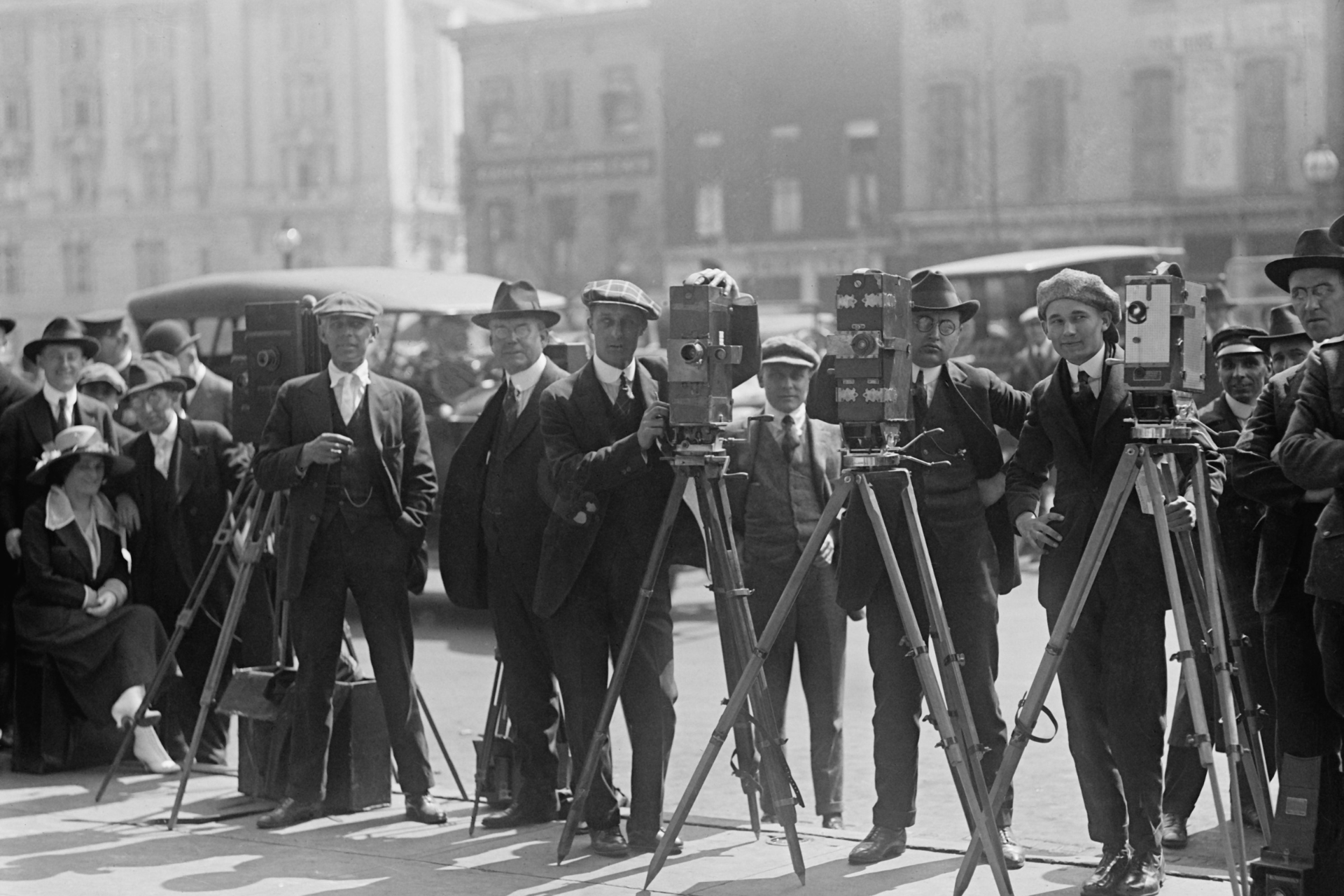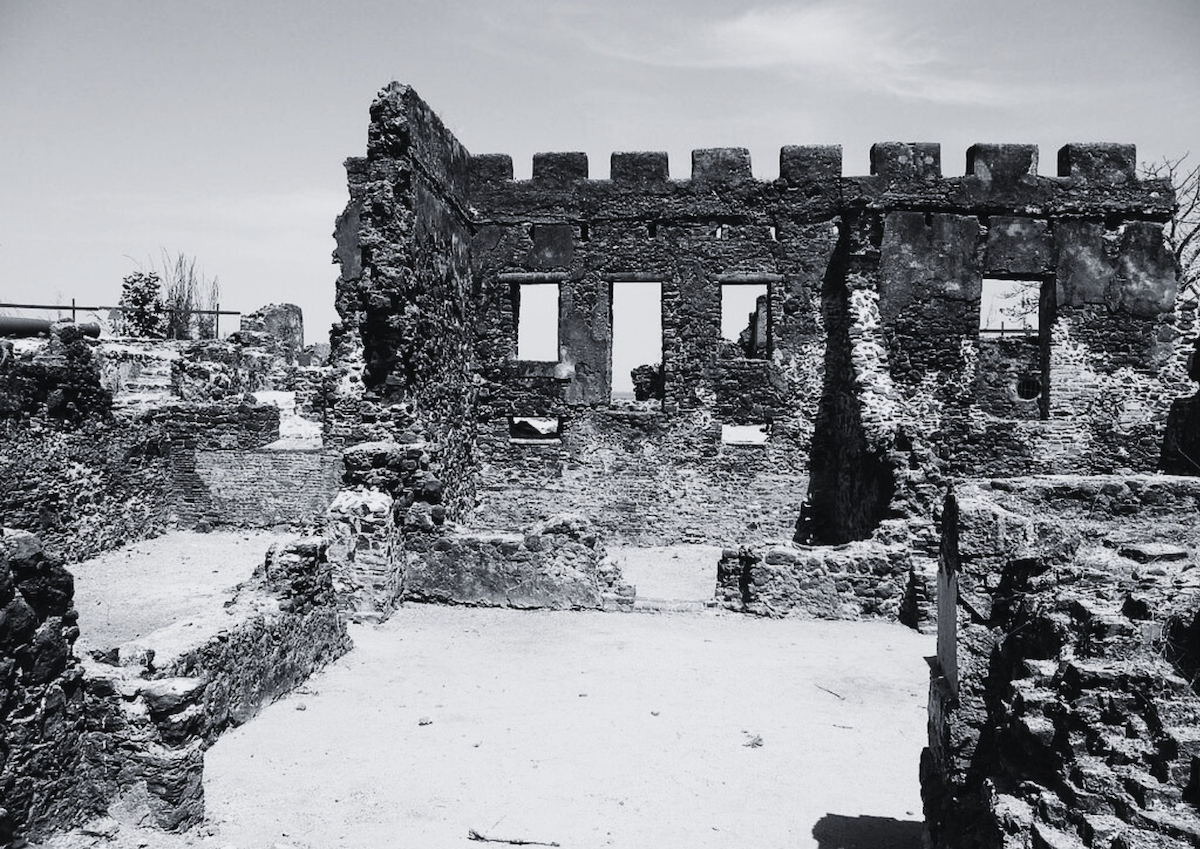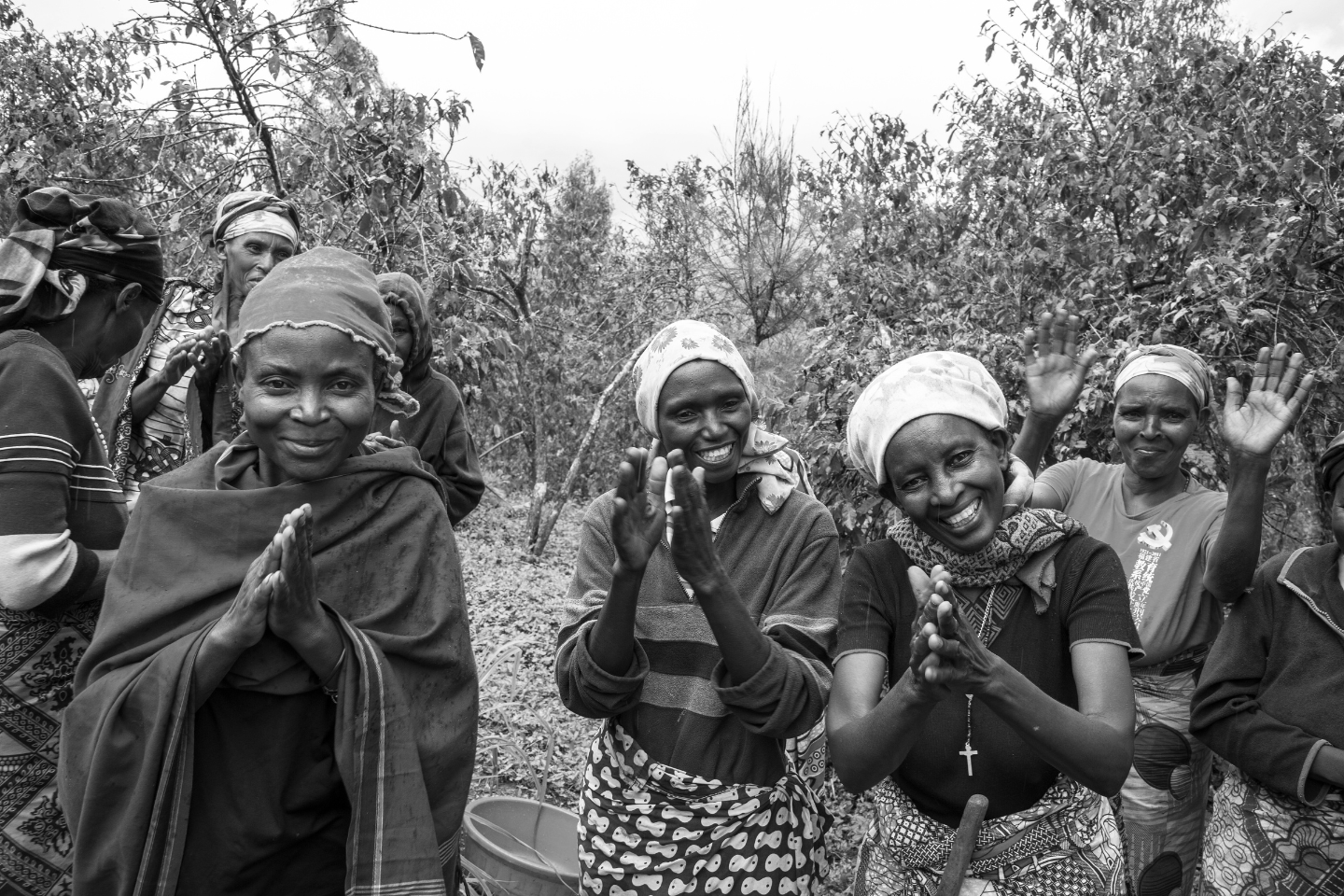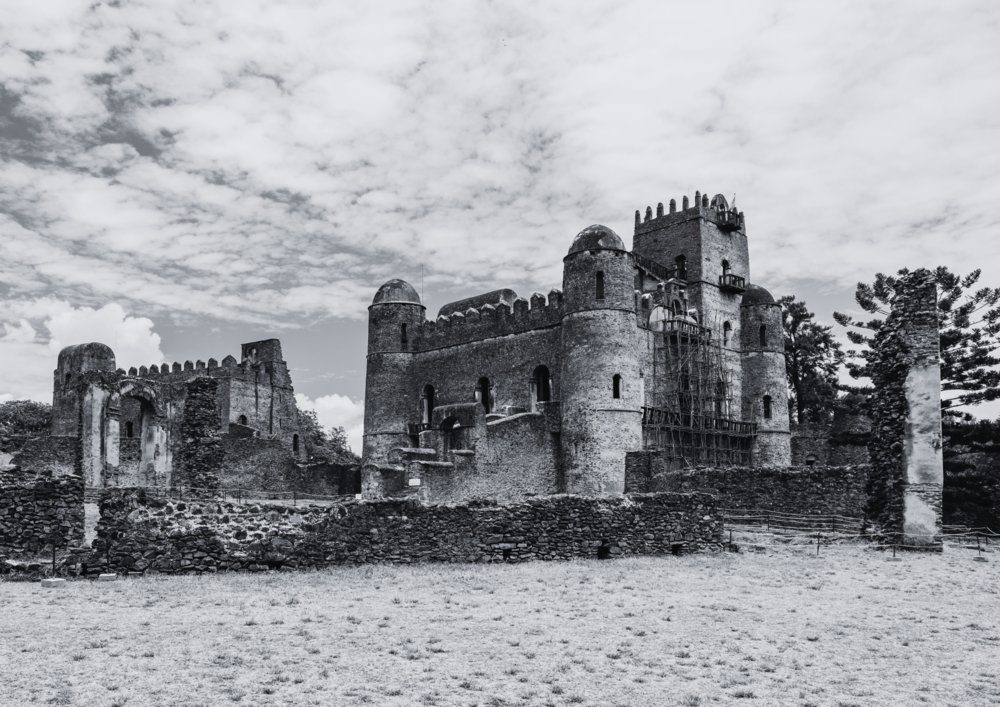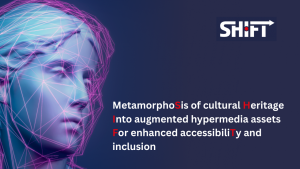: Opinion pieces
News Archives: an invaluable heritage resource
By Olivia Stockdale
News Archivist
Next year marks the 70th anniversary of ITN, the British broadcaster established in 1955 as the main alternative to the BBC; they pioneered frontline broadcasts and challenged the typically diffident style of those who came before. Over these seven decades, ITN cameras have captured everything from the building of the Berlin Wall to the storming of the US Capitol. Where does this veritable avalanche of footage go? It’s carefully logged, stored, and organised by us news archivists. The job of the news archivist is a fascinating one, made all the more so by its relative obscurity. This blog post seeks to tackle some of that obscurity, whilst hopefully not reducing any of the intrigue.
The scale of information we work with is huge. Each day, we deal with material spanning 1955 to yesterday. Our footage is from all over the world and comes in seemingly endless forms – from rushes (unedited footage) to reports, film to digital. Dealing with historic material on film and tape can be the most rewarding. The role of news archivist in an active television news organisation is mainly digitally focused and working with physical objects provides a chance to deal with tangible heritage. There are over 20,000 film cans in storage, endless piles on pallets, containing undigitised coverage of the Selma marches and previously unseen rushes from the Suez Crisis. Whilst in storage, everything is open to loss; film is susceptible to vinegar syndrome, a condition which causes the film strip to decay and renders footage unviewable. Even newer footage is at risk from external factors; everyone was relieved when a shipment of recently discovered tapes from ITN’s now defunct South Africa Bureau arrived in the UK where digitisation could begin and the footage safely stored in another format. There are also rumours of tapes from ITN’s former Moscow Bureau lurking somewhere in Russia, perhaps lost to time. As such the drive to protect these for posterity through digitisation is a constant consideration. Yet as ever in heritage this must be balanced with the usual barriers like money and manpower. It is often a case of waiting for orders for certain footage to focus on.
Another key feature of working in a news archive is providing accessibility, a buzz word in the heritage field. By cataloguing footage, we make it accessible to internal newsrooms and external researchers. Accessibility to archives has a clear purpose: make viewers privy to a range of perspectives, ‘facts’, and voices. Essentially, to allow them to get as close to the ‘truth’ as is possible. It furthermore preserves and highlights historically important footage; ITN were in Trảng Bàng when the little girl, immortalised by Nick Ut’s photo, came running down the street after the napalm attack. What that photo doesn’t capture is the woman who follows behind, cradling a wounded baby in her arms. Such footage is deeply uncomfortable, but provides further insight into the suffering caused by war – and further access to the truth. ITN reporters were in Bosnia in 1992, breaking the story of human rights abuses in the Omarska and Trnopolje concentration camps. More recently, they were in Sudan, capturing evidence of the horrific crimes against humanity going on as we speak. Such footage is not just ‘for posterity’ – it is likely that it will later be used by prosecutors. Although only filmed in May, this has already been catalogued by archivists.
There is a cultural benefit which comes from making this footage accessible also. Much of ITN’s footage captures ‘everyday life’ on the local and international scale. A favourite series of mine is the Roving Reports, documentary-style reports filmed from 1957 to 1964. Reporters travelled to over 80 different countries aiming to shine a light on different parts of the world during the rapid change of those decades. They are undoubtedly aimed at a British audience; however, in many cases they document intangible heritage like dance, pottery making and music giving a fascinating visual insight into different societies often on the brink of great change. They are an invaluable resource that can be used to capture the more human aspects of our history to show to future generations, like miniature landscapes in a snow globe.
I never set out to become a news archivist; however, it has proved a great chance to deal with tangible and intangible heritage and footage ranging from the everyday to the iconic. Through this footage we are witnesses to human atrocity that can be used to gain justice, but we are also witness to simple humanity, a reminder than even with so much change, we remain the same at our core. Next year is the 70th anniversary of ITN and with such a wealth of material still needing digitisation and cataloguing, we can hopefully use the occasion to raise more awareness of our archive and further champion seven decades of unparalleled material.
QUOTE : ITN news reports in many cases they document intangible heritage like dance, pottery making and music giving a fascinating visual insight into different societies often on the brink of great change.
The significance of Kunta Kinteh island and related sites
By Ebrima Jammeh*
The Gambia is the smallest country on mainland Africa, with a population of about 2 million people. It is often referred to as the smiling coast of Africa due to the friendly nature of its people. It is surrounded on all three sides by Senegal (North, South, and East) except the West, which is occupied by the Atlantic Ocean, and is divided into two halves (North and South) by the River Gambia (a freshwater river).
Having gained independence from the British in 1965, it became a Republic in 1970 under the Leadership of President Dawda Kairaba Jawara.
Kunta Kinteh Island and Related Sites: Outstanding Universal Value
Kunta Kinteh Island, formerly known as James Island, and its related sites, are a testimony to the encounter between Africa and Europe along the River Gambia, a period stretching from pre-colonial and pre-slavery times to independence. The site is particularly significant for its relation to both the beginning of the slave trade and its abolition and also documents early access to the interior of Africa.
Kunta Kinteh is a small island in the Gambia River which flows out into the Atlantic Ocean. The island’s location made it a strategic place to control the waterway. Visited by explorers and merchants in their search for a sea route to India, it became one of the first cultural exchange zones between Africa and Europe. By 1456 the Island had been acquired by Portugal from local rulers and the construction of a fort began. Kunta Kinteh Island and Related Sites form an exceptional testimony to the different facets and phases of the African-European encounter, from the 15th to the 19th centuries. The River Gambia was particularly important forming the first trade route to the inland of Africa. The site was already a contact point with Arabs and Phoenicians before the arrival of the Portuguese in the 15th century. The region forms a cultural landscape, where the historic elements are retained in their cultural and natural context. The properties illustrate all the main periods and facets of the various stages of the African-European encounter from its earliest moments in the 15th Century through the independence period.
The main focus of the Kunta Kinteh Island site was the control of the hinterland and its riches rather than control of the coast and the trade that passed along it.
The specific location of Kunta Kinteh Island and its Related Sites, at the mouth of the Gambia River, is a tangible reminder of the story of the development of the Gambia River as one of the most important waterways for trade of all kinds from the interior to the Coast and beyond. The specific, important role of the site in the slave trade, both in its propagation and its conclusion, makes Kunta Kinteh Island and its Related Sites an outstanding memory of this important, although painful, period of human history.
The property includes Kunta Kinteh Island Fort and a series of sites associated with the early European occupation of the African continent. The ensemble has seven separate locations: the whole of Kunta Kinteh Island, the remains of a Portuguese Chapeland of a colonial warehouse (CFAO Building) in the village of Albreda, the Maurel Frères Building in the village of Juffureh, the remains of the small Portuguese settlement of San Domingo, as well as Fort Bullen and the Six-Gun Battery. Fort Bullen and the Six-Gun Battery are at the mouth of the Gambia River, whilst Kunta Kinteh Island and the other sites are some 30 km upstream.
The development of Kunta Kinteh Island differed greatly from that of the many other forts, castles, and trading posts found in other parts of West Africa in that the main focus of the Kunta Kinteh Island site was the control of the hinterland and its riches rather than control of the coast and the trade that passed along it.
The Six-Gun Battery (1816) and Fort Bullen (1826), located on both sides of the mouth of the River Gambia came much later than Kunta Kinteh Island and were built with the specific intent of thwarting the trade in slaves once it had become illegal in the British Empire after the passing of the Abolition Act in 1807. They are the only known defensive structures in the region to have been built specifically to stop slaving interests. The other fortifications of the region (including Kunta Kinteh Island), were constructed as a means of enhancing and controlling the trade in slaves (and commodities) rather than stopping it. These two military positions allowed the British to take full control of the River Gambia, eventually paving the way for the establishment of the colonial government, a period well-illustrated by many colonial buildings in Banjul and the Governor’s Rest House at Fort Bullen. Finally, Fort Bullen shows evidence of its re-use during the Second World War (1939-1945) as a strategic observatory and artillery post. This later period illustrates yet another European rivalry that spread to the African continent.
The Six-Gun Battery (1816) and Fort Bullen are the only known defensive structures in the region to have been built specifically to stop slaving interests.
Site Significance
Criterion (iii): Kunta Kinteh Island and related sites on the River Gambia provide an exceptional testimony to the different facets of the African-European encounter, from the 15th to 20th centuries. The river formed the first trade route to the inland of Africa, being also related to the slave trade.
Criterion (vi): Kunta Kinteh Island and related sites, the villages, remains of European settlements, the forts and the batteries were directly and tangibly associated with the beginning and the conclusion of the slave trade, retaining its memory related to the African Diaspora.
Integrity: The six parts of the serial nomination together present a testimony to the main periods and facets of the Afro-European encounter along the River Gambia, a continuum that stretched from pre-colonial and pre-slavery times to the period of independence and in particular to the beginning and the abolition of the slave trade, as well as documenting the functions of the early access route to the inland of Africa. The six sites encompass all the key remains.
All the sites except the CFAO and Maurel Frères Buildings are ruins. The CFAO Building has been restored and provided with adequate sea defense. The Maurel Frères Building was restored in 1996 and is in a good state of conservation. The Portuguese chapel and San Domingo are in a state of ruins, but these have been stabilized, with the most endangered parts reinforced in 2000.
The isolated position of Kunta Kinteh Island in the river has conserved its setting to the present day. Fort Bullen is also bordered by the river on one side and a large open tract of land on the other, naturally serving as a buffer zone and helping to preserve its setting. It is in a relatively good state of conservation, though the wall on the seaward side is suffering from sea erosion. Parts have collapsed and 20 metres were rebuilt in 2000. The Six-Gun Battery is in a good state of conservation. The ruined sites need ongoing maintenance if they are not to deteriorate over time.
Authenticity: Kunta Kinteh Island Fort was subjected to destruction on numerous occasions. Since the last time by the French, in 1779, it has remained a ruin with only minor attempts at consolidation and minimizing the effects of sea erosion. The Island is a landmark for all concerned with the slave trade, especially the local community and Africans in the Diaspora. Apart from a short period of re-use during the Second World War. Fort Bullen and the Six-Gun Battery were similarly abandoned in the late 19th century. At San Domingo, there are very few visible remains but the area has considerable potential for archaeological research. The ruins that convey the Outstanding Universal Value are extremely vulnerable to erosion. At the time of inscription to the UNESCO World Heritage List, the ruined sites were seen to be part of a wider cultural landscape that needed protection to protect the setting of the sites and to allow them to be understood.
Protection and management requirements
Kunta Kinteh Island, Fort Bullen and all the significant historic buildings in the Albreda-Juffureh complex are legally protected as National Monuments (1995) under the National Council for Arts and Culture Act, 1989 (revised 2003). The proclamation instrument also establishes a buffer zone for all the sites that should be kept free of incompatible developments with adverse effects on their setting. As National Monuments the historic structures are under the custodianship of the National Centre for Arts and Culture (NCAC) who are responsible for their conservation and upkeep. Day-to-day management rests with the Directorate of Cultural Heritage of the NCAC, which employs a Destination Manager, Showroom attendant, site attendants and caretakers. The Six-Gun Battery is located within the State House grounds and is protected by the Office of the President. The sites also have a 5-year management plan that sets out what is acceptable at the individual site and at the national level. This plan was prepared as a result of the joint effort of ten different national and local organizations, supported by the Africa 2009 program.
The funding used for the management and maintenance of the sites is relatively limited and comes mainly from entrance fees. Every three months, the Head of the Museums and Monuments section of the NCAC performs a physical inspection of the sites. This conditional assessment is carried out with a representative of the local stakeholders and, if possible, with a local guide. A brief report is prepared after each visit and these are summarized in an annual report.
To the visitors, the property has symbolic and emotional significance, as a visit to Kunta Kinteh Island is a pilgrimage to their roots. As a piece of historical evidence, much can be learnt from the Island, and it already forms part of the history and social studies syllabus in Gambian schools.
The property contains very fragile ruins that need to be protected and conserved as the tangible elements that convey Outstanding Universal Value. There needs to be ongoing maintenance, monitoring, and conservation to allow these ruins to have the best chance of survival and be robust enough to withstand the onslaughts of nature.
Challenges Include:
- Inadequate funding to ensure constant preservation
- Climate change factors such as erosion sea level rise, weathering
- Treasure hunting
- Inadequate capacity building among the staff
Strengths: The local community is being engaged at all levels while The Gambia has in place an effective and efficient legal framework in the management system. The site’s staff is a committed team that is receiving training in heritage management from the NCAC’s partner organization, HERITΛGE, through its HerMaP Gambia program, co-funded by the European Union.
PARTNERS
The National Centre for Arts and Culture partners with the following:
HERITΛGE through its HerMaP Gambia program that is co-funded by the European Union.
UNESCO
NATCOM
Coalition of Sites of Conscience
African World Heritage Fund (AWHF)
Gambia Tourism Board (GT BOARD)
Gambia Tourism and Hospitality Institute (GTHI)
*Ebrima Jammeh is Destination Manager for The Gambia’s National Centre for Arts and Culture (NCAC). This work was first presented at the 5th World Heritage Site Managers Forum that took place earlier this year in Saudi Arabia.
Cultural heritage as a catalyst for peace: Empowering communities in peacebuilding efforts
While the international media often spotlights the cycles of war and violence plaguing Africa, the quieter, effective grassroots efforts aimed at overcoming trauma, restoring justice, and reconciling conflicting groups receive less attention, writes Paulin Regnard*
In various corners of the continent, traditional customs open paths diverging from conventional legal system formalities, sometimes in dramatic fashion. For instance, informal transitional justice mechanisms, like Rwanda’s gacaca courts and South Africa’s Truth and Reconciliation Commission, have effectively provided accessible and inclusive solutions. Rooted in traditions of reconciliation and communal healing, these practices bridge the justice gap, returning ownership and authenticity to the healing process. Despite their limits, these methods show that cultural heritage is more than a relic of the past — it’s a bridge to the future, even in the most difficult settings.
In conflict-impacted countries, cultural heritage sustains continuity and identity. Initiatives that raise awareness, document cultural assets, and train heritage advocates are essential in empowering social groups, especially youths, to bridge ethno-political divides. My experience in UN peacekeeping, especially in South Sudan and he DRC, has taught me the effectiveness of community engagement, with locals keen to share their insights and solutions. I’ve also learnt that mobilizing communities, government institutions, and civil society to protect cultural sites and intangible heritage is no easy task. In fact, in areas impacted by armed violence, these issues often rank at the bottom of priorities whereas security and livelihoods are primary concerns.
Efforts to document local ecological knowledge have aimed to bolster indigenous and local community management of natural resources including within protected areas. However, these attempts are sporadic and limited to very specific geographical contexts. As a rule, the value of cultural heritage is largely overlooked or underappreciated in humanitarian, peace, and development initiatives. It’s crucial for peacemaker, aid workers and their counterparts to acknowledge why heritage plays such a vital role in people’s identities and perceptions. Incorporating heritage into strategies for enhancing democratic governance, resolving conflicts, and stimulating economic growth can provide a good starting point, highlighting its importance to building peaceful and prosperous societies. Let’s explore these aspects further.
Firstly, restoring effective state authority is a top priority in fragile countries. Local and subnational governments (along with customary authorities) play a key role in delivering essential services amidst challenges like understaffing and inadequate infrastructure. Highlighting cultural assets into local development policies should help recognize their relevance to a region’s identity and potential. Collaboration between public institutions, civil society and implementers is essential to ensure projects are inclusive, sustainable, and support wider development objectives. Unfortunately, a post-crisis context is hardly favorable. Management capacities are often limited, skills gaps remain to be filled, and politicians do not always grasp the socio-economic benefits of heritage.
Furthermore, resolving communal disputes, particularly those rooted in identity and resource competition, is necessary for mending divisions and preventing further conflicts. As it embodies a shared history and traditions. cultural heritage can offer a neutral ground for discussion and cooperation, provided it isn’t exploited by conflicting parties. Also, heritage conservation activities can contribute to peace by involving all sectors of local society, government agencies and civil society organizations. Trained facilitators can help further demonstrate the value of heritage as a connector.
Igniting local development and job creation is essential for economic revival. Cultural heritage, through avenues like cultural tourism, site management, and traditional crafts, offers significant potential for growth. However, securing adequate resources remains a substantial challenge in fragile contexts. With proper support, these areas can significantly boost economic recovery and community revitalization, underscoring cultural heritage’s role as a driver of development and job opportunities.
Intangible cultural heritage (ICH) can help restore and strengthen social cohesion and civic trust in places like South Sudan and the DRC, just to cite two places I am familiar with. These two young nations, characterized by decades of civil wars, non-state armed group activities, and inter-community conflicts, share the multicultural and multilingual traits common to many sub-Saharan African countries. In such contexts, ICH can bring communities together, showcasing its importance in the broader peacebuilding context.
A typical example is how traditional conflict resolution, an integral part of ICH, supports grassroots peacemaking. Engaging traditional chiefs, who embody their clans’ customs and wield authority to uphold peace agreements, has often proved effective. Unfortunately, good traditional practices are not recorded and fade in collective memories. in many areas of the DRC and South Sudan, decades of turmoil and institutional changes have weakened chiefs’ influence. Additionally, modern societal shifts lead to the neglect of traditional practices by younger generations. Moreover, it’s important to recognize that while cultural traditions merit respect, not all traditional methods and mechanisms are conducive to values of inclusiveness and gender equality.
Another ICH component, music and dance, central to social life in Africa, serve as outlets for communities. The Amani Festival in Goma, DRC, exemplifies this, achieving remarkable success. Since its launching by a community-based organization in 2014, the three-day event has been dedicated to fostering peace and reconciliation in the Great Lakes region, attracting national and international artists, along with thousands of spectators from the DRC and beyond. Offering more than just music, the festival includes workshops, debates, sports, and exhibitions. The next edition is scheduled for June 2024.
As a nation navigates the path towards peace and recovery, we must not overlook the plight of refugees and internally displaced people, who are particularly vulnerable to the loss of their cultural heritage in times of crisis. Their vulnerability underscores the importance of incorporating cultural heritage not only into peacebuilding strategies per se, but also in humanitarian aid. By doing so, we recognize heritage as a critical component alongside other cross-cutting themes like gender equality and human rights, thereby ensuring a more holistic approach to rebuilding and healing communities.
* Paulin Regnard is an experienced Peacebuilding & Democratic Governance Expert and former UN Field Manager
Enhancing Ethiopia’s Cultural Heritage: A Strategic Imperative
By Xanthippi Kontogianni*& Mina Morou**
Ethiopia’s rich cultural diversity and heritage are cornerstones of its global identity, steeped in historical significance and natural wonders. However, preserving and managing this invaluable heritage necessitates meticulous planning and collaborative efforts at both national and regional levels.
In Ethiopia, a federal state divided into 14 regions, the responsibility for safeguarding this heritage lies with the Ethiopian Heritage Authority at the national level and the Culture and Tourism Bureaus distributed across the regional landscape. HERITΛGE, recognizing the pivotal role of regional involvement, embarked on a mission after its inaugural in-country workshop in July 2023 in Addis Ababa. This mission focused on augmenting the strategic planning capacities of Ethiopia’s Culture and Tourism Bureaus, fueled by HERITΛGE’s mapping results.
Led by Ethiopia’s Project Manager, Xanthippi Kontogianni, the HERITΛGE team has meticulously navigated Ethiopia’s heritage landscape since its inception in January 2023. Their dedicated efforts encompassed an exhaustive mapping exercise, identifying training needs and gaps in heritage management across the nation. This inclusive process, involving networking meetings, expert interviews, and a comprehensive online survey, unveiled Ethiopians’ deep pride in their regional cultural and natural heritage assets. Yet, it also highlighted critical challenges: deficient planning strategies, limited community awareness, and substantial gaps in documenting and preserving local heritage.
The workshop on “Strategic Planning for Heritage Managers” emerged as a pivotal response to these concerns. Conducted online from November 24 to 27, this engaging session drew participation from heads, directors, and experts representing regional bureaus of Tigray, Somali, Oromia, and Amhara. Despite connectivity challenges faced by potential attendees due to internet and electricity shortages, Mrs. Selamawit Getachew, Director of the Conservation Department of the Ethiopian Heritage Authority, played a key role in the workshop.
Over three days, the workshop provided comprehensive insights into strategic concepts, encouraging participants to reflect on their bureau’s mission and vision. Utilizing tools like SWOT and Porter’s analysis, they dissected micro and macro environments, identifying critical success factors for effective strategy development and implementation. The workshop concluded by inspiring participants to craft strategic business plans for their respective Culture and Tourism Bureaus, fostering collaboration among team members.
Dr. Atsbha Gebreegziabher, Head of Tigray’s Culture and Tourism Bureau, reflected on the workshop’s impact in the post-war period: “The workshop intensively encouraged me to be more critical in developing strategies, especially during our re-operational phase.” Mrs. Selamawit Getachew praised the participatory approach, acknowledging the instructor’s adeptness in facilitating discussions.
The workshop, spearheaded by Dr. Alexandros Papalexandris, an experienced strategist from the Athens University of Economics & Business, was a HERITΛGE initiative supported by the Humanities in Place Program of the Mellon Foundation.
In conclusion, this strategic intervention signifies HERITΛGE’s commitment to empowering regional bureaus and strengthening heritage management strategies across Ethiopia. Through collaborative efforts and strategic planning, HERITΛGE endeavors to preserve Ethiopia’s remarkable cultural legacy for generations to come. The workshop not only catalyzed strategic thinking but also ignited a shared vision among participants for a more robust future in heritage management. HERITΛGE remains steadfast in advancing strategic initiatives that safeguard and celebrate Ethiopia’s diverse cultural heritage.
*Xanthippi Kontogianni is HERITΛGE’s Ethiopian Programs Manager
**Mina Morou is HERITΛGE’s Africa Programs Manager
Europe’s Common Data Space for Cultural Heritage
By Rob Davies
The European Strategy for data focuses on putting people first in developing technology and defending and promoting European values and rights in the digital world. Data is seen as an essential resource for economic growth, competitiveness, innovation, job creation and societal progress in general. The aim is to create a single market for data that will ensure Europe’s global competitiveness and data sovereignty.
Common European data spaces will be developed and funded in key strategy sectors and areas of public interest, such as health, agriculture or manufacturing. They are intended to ensure that more data becomes available for use in the economy and society, while keeping the companies and individuals who generate the data in control. Data driven applications will benefit citizens and businesses in many ways such as improved health care, safer and cleaner transport systems, lower cost public services, improved sustainability and energy efficiency, more business innovation and by generating new products and services.
The plan is to adopt legislative measures on data governance, access and reuse, e.g. for business-to-government data sharing for the public interest. And to make data more widely available by opening up high value publicly held datasets across the EU and allowing their reuse for free. A big investment in data processing infrastructures, data sharing tools, architectures and governance mechanisms. Thriving data sharing and federated energy-efficient and trustworthy cloud infrastructures and related services.
Among the 14 data spaces initially envisaged, The European Commission has published a recommendation on a common European data space for cultural heritage. The aim is to accelerate the digitisation of cultural heritage assets like cultural heritage monuments and sites, objects and artefacts for future generations, to protect and preserve those at risk, and boost their reuse in domains such as education, sustainable tourism and cultural creative sectors.
Currently cultural tourism represents up to 40% of all tourism in Europe, cultural and creative industries contribute 3.95% of total EU value added (€477 billion) and more than 8 million people are employed within them, through 1.2 million firms – 99.9% of which are SMEs; Member States are encouraged to digitise by 2030 all monuments and sites that are at risk of degradation and half of those highly frequented by tourists. This will contribute to the objectives of the Digital Decade by fostering a secure and sustainable digital infrastructure, digital skills and uptake of technologies by businesses, in particular SMEs.
Europeana, the European digital cultural platform, will be at the basis for building the common data space for cultural heritage by allowing museums, galleries, libraries and archives across Europe to share and reuse the digitised cultural heritage images such as 3D models of historical sites and high quality scans of paintings. Europeana currently offers access to 52 million cultural heritage assets, 45% of which can be reused in various sectors. Images and text make up 97.5% of Europeana’s assets, with only 2.47% audiovisual content and 0.03% in 3D. The collection of 3D assets in particular should see a massive boost, thanks to this latest initiative.
It is envisaged that the common data space for cultural heritage will include a wider variety of data types than the current digital content of Europeana. While these are still to be fully defined, they might be about any aspect of tangible or intangible Cultural Heritage – its creation, description, storage, presentation/performance, transmission, access, preservation, reuse, rights etc.- or possibly even more widely drawn from across the whole spectrum of cultural activity, including data coming from scientific or other fields which eventually constitutes our heritage.
Alongside this, the European collaborative cloud on cultural heritage (ECCCH) is a European Union initiative for a digital infrastructure that will connect cultural heritage institutions and professionals across the EU. It is intended to help protect European cultural heritage while answering to the new requirements of a digitized world. In doing that, it will provide practical benefits to all cultural heritage professionals and museums, developing specific digital collaborative tools for the sector while removing barriers for smaller and remote institutions. The goal is to help cultural heritage institutions, research organisations and other professionals of all sizes and types work with their digital objects in a more visible, interconnected, harmonised, and informed way, allowing them to successfully cope with the challenges the digital transition poses to the sector.
The ECCCH, funded by Horizon Europe, will aim to add a new digital dimension to cultural heritage preservation, conservation, restoration and enhancement by providing cutting-edge technologies for digitising artefacts and researching artworks, paving the way for new transdisciplinary collaboration in the field of cultural heritage, bringing together specialists from a range of disciplines, including scholars, curators, archivists, and conservators.
This ambitious project for a new cutting-edge platform will work in tandem with other European initiatives, such as Europeana and the common European dataspace for cultural heritage, to add a new dimension to the way we approach, conserve and enhance our shared cultural heritage. As part of the ECCCH, two calls for proposals were open until September 2023 to fund. projects which will contribute to setting up the foundations of ECCCH. With an envisaged budget of €110 million until 2025 from Horizon Europe, the ECCCH will be a unique infrastructure that will enable unprecedented transdisciplinary and large-scale collaboration between specialists.
*Rob Davies is HERITΛGE’s Head of European Programs and Chair of the Management Board of the Europeana Network Association (ENA).
*HERITΛGE offers a number of training opportunities on Digital Tools for Cultural Heritage. These include a 3-day workshop, a summer field school, and a credit bearing Certificate in cooperation with HOGENT University.
Critical challenges in the way we experience heritage in the realm of museums
By Dr. George Margetis
The SHIFT project, funded by the European Commission’s Horizon Europe Program, comes to revitalize how we experience cultural heritage by matching innovation with tradition and creating multi-sensory heritage encounters that transcend boundaries and welcome everyone.
More specifically, SHIFT aims to unlock the past for everyone and is committed to accessibility and inclusivity, ensuring that cultural heritage becomes accessible to all, and allowing everyone to connect with their heritage regardless of background or ability. Emphasizing also that diversity matters, SHIFT pursues to empower people with disabilities to enrich their perspectives and foster their understanding.
SHIFT is addressing the critical challenges we encounter in the realm of museums. These are:
Challenge 1: diverse heritage, diverse needs.
Our cultural heritage often excludes individuals of diverse backgrounds from fully engaging with it.
Challenge 2: physical barriers transform heritage exploration into a struggle for individuals with mobility challenges.
Limited access narrows their ability to engage with exhibits, diminishing their capacity to immerse themselves in their stories.
Challenge 3: language and cognitive barriers.
The language barrier and cognitive disabilities create a divide leaving visitors disconnected from heritage stories.
Challenge 4: exclusion of sensory diversity.
Many cultural experiences focus on sight and sound, excluding those who experience the world differently.
Challenge 5: theater of inclusivity.
Museums should prioritize inclusivity for all visitors but certain interactive elements and live performances may unintentionally exclude individuals with varying abilities.
The SHIFT project consortium that consists of 13 European partners, is tackling these challenges head-on, reimagining accessibility to cultural heritage through innovative and inclusive approaches.
By addressing these issues we pave the way to a more accessible and enriching cultural experience for all.
Dr. George Margetis, is a postdoctoral researcher with the Human-Computer Interaction Laboratory of The Institute of Computer Science of FORTH. The HCI lab is leading SHIFT’s Work Package 3 implementation, catering to the accessibility of cultural heritage assets and improving the user experience of people with visual impairments. This opinion piece was originally part of a presentation for the webinar held to celebrate European Heritage Days 2023. You can watch the entire webinar that was hosted by HERITΛGE here.

